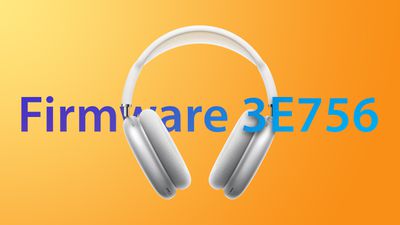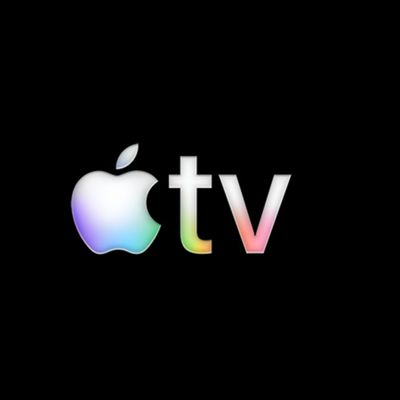Apple Releases New '3E756' AirPods Max Firmware
Apple today released new 3E756 firmware designed for the AirPods Max, marking the third firmware update Apple has introduced for its high-end headphones since their December launch.

The new 3E756 firmware replaces the 3C39 firmware that was released to AirPods Max owners in March.
Apple does not provide details on what's included in new firmware updates, so we don't know what bug fixes or improvements the new firmware might offer. There may be improvements to battery life, or updated support for Spatial Audio, a feature that debuted for Apple Music yesterday.
There's no standard way to upgrade firmware on AirPods, AirPods Pro, or AirPods Max, but connecting the AirPods Max to an iPhone or an iPad while connected to a power source may force the update.
You can check the firmware on your AirPods Max by following these steps:
- Connect your AirPods Max to your iOS device.
- Open the Settings app.
- Tap General.
- Tap About.
- Tap AirPods.
- Look at the number next to "Firmware Version."
In the past, updates for the AirPods Pro and AirPods have included performance improvements, bug fixes, and feature tweaks. The prior update, for example, addressed a Smart Case battery drain issue.
If we find notable changes after installing the firmware updates, we'll update this article.
Popular Stories
While the iOS 26.3 Release Candidate is now available ahead of a public release, the first iOS 26.4 beta is likely still at least a week away. Following beta testing, iOS 26.4 will likely be released to the general public in March or April.
Below, we have recapped known or rumored iOS 26.3 and iOS 26.4 features so far.
iOS 26.3
iPhone to Android Transfer Tool
iOS 26.3 makes it easier...
Apple recently acquired Israeli startup Q.ai for close to $2 billion, according to Financial Times sources. That would make this Apple's second-biggest acquisition ever, after it paid $3 billion for the popular headphone maker Beats in 2014.
This is also the largest known Apple acquisition since the company purchased Intel's smartphone modem business and patents for $1 billion in 2019....
Apple turns 50 this year, and its CEO Tim Cook has promised to celebrate the milestone. The big day falls on April 1, 2026.
"I've been unusually reflective lately about Apple because we have been working on what do we do to mark this moment," Cook told employees today, according to Bloomberg's Mark Gurman. "When you really stop and pause and think about the last 50 years, it makes your heart ...
Apple today began selling certified refurbished iPhone 16, iPhone 16 Plus, iPhone 16 Pro, and iPhone 16 Pro Max models on its online store in the U.S., with prices discounted by 12% to 22% compared to Apple's current or former pricing for the devices.
Here were Apple's starting prices when the devices launched in September 2024:
iPhone 16: $799
iPhone 16 Plus: $899
iPhone 16 Pro:...
Apple on Tuesday previewed 12 new shows and films that will be premiering on the Apple TV streaming service throughout 2026.
The new series:
Imperfect Women — March 18, 2026
Margo's Got Money Troubles — April 15, 2026
Widow's Bay — April 29, 2026
Maximum Pleasure Guaranteed — May 20, 2026
Cape Fear — June 5, 2026
Lucky — July 15, 2026
The new films:
Eternity — ...





















